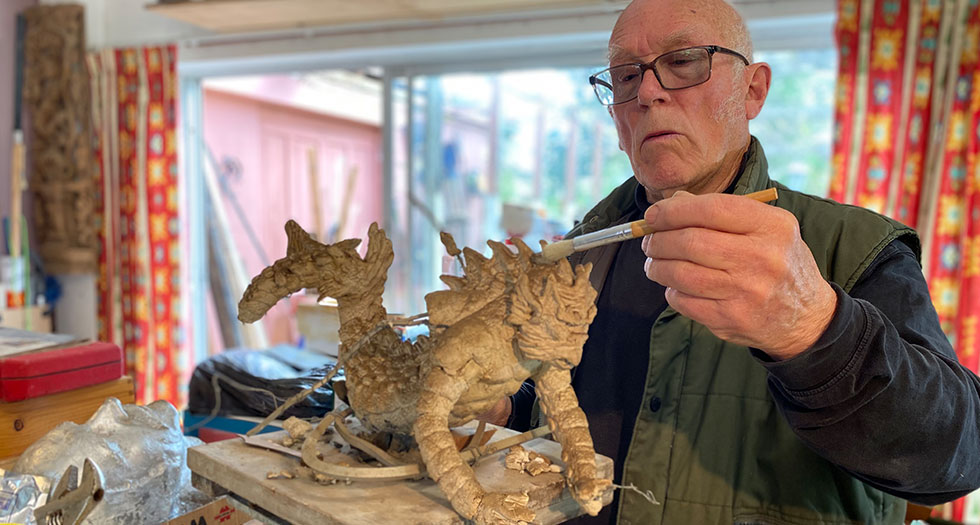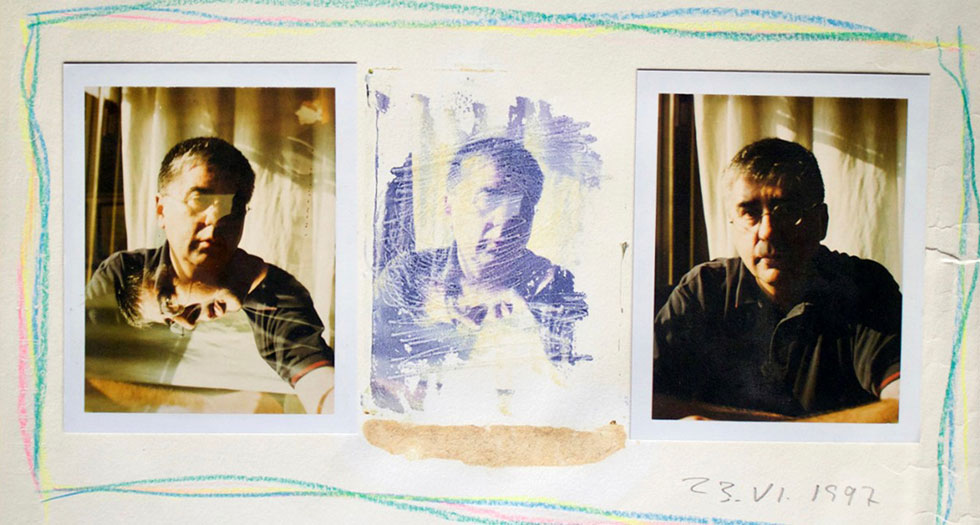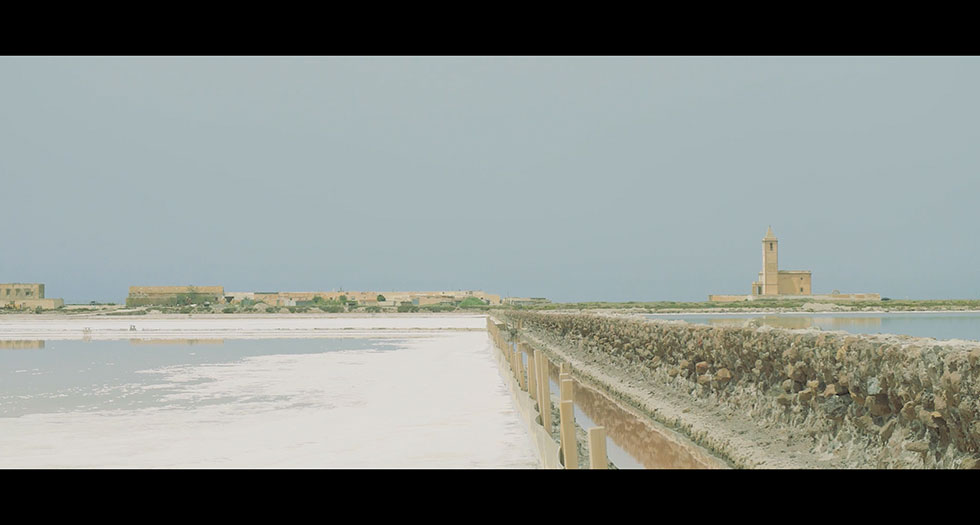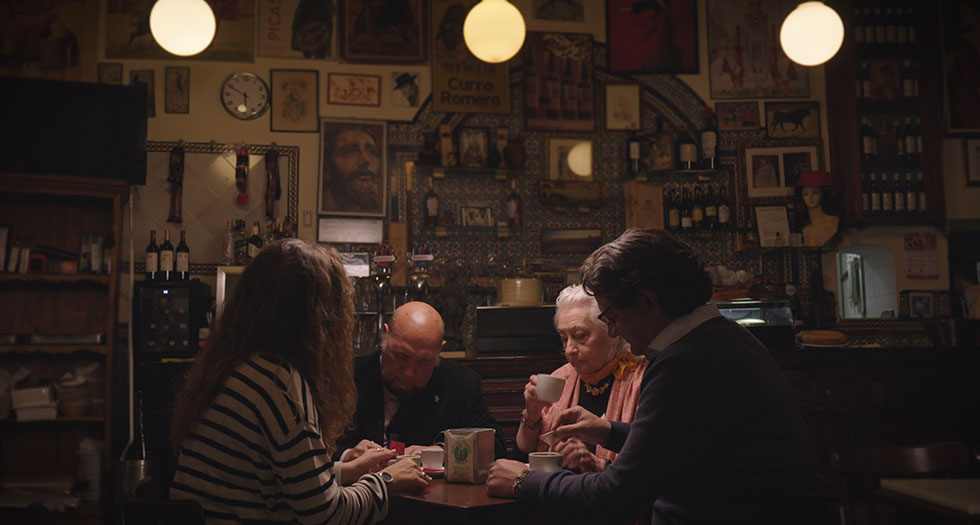El género documental vive un gran momento y prueba de ello son las obras que veremos en FICAL.
En El valle de Concadenator, Víctor Matellano nos acerca al rodaje de la mítica El valle de Gwangi, producida por Ray Harryhausen y rodada en nuestro país, entre Cuenca y Almería, una inusual propuesta de vaqueros contra dinosaurios en el oeste americano en la que participa el genio de los efectos especiales Colin Arthur.
El teatro Apolo acogerá el estreno del documental Manuel Falces, pequeño inventario de espejos. Falces fue el creador del Centro Andaluz de la Fotografía y una de las figuras claves de este arte. El director José Manuel Mouriño penetra en su personalidad y en su estilo en una obra que ha contado con el apoyo de la Diputación de Almería.
La sal de la vida, las salinas de Cabo de Gata, de Bernabé Bulnés, profundiza en la belleza y en la vida de los salineros de una de las zonas más características del litoral almeriense.
En Ultimas unidades, Hugo Cabezas y Alejandro Toro toman como punto de partida la situación del pequeño comercio del centro de Sevilla para reflexionar sobre una situación que se repite en los cascos históricos de la mayoría de las ciudades españolas, con historias entrañables y cercanas muy reconocibles.
FICAL DOCUMENTARY
The documentary genre is experiencing a great moment and proof of this are the works we will see at FICAL.
In El valle de Concadenator, Víctor Matellano takes us to the filming of the mythical El valle de Gwangi, produced by Ray Harryhausen and shot in our country, between Cuenca and Almería, an unusual proposal of cowboys against dinosaurs in the American West with the participation of special effects genius Colin Arthur.
The Apolo Theater will host the premiere of the documentary Manuel Falces, pequeño inventario de espejos (Manuel Falces, a small inventory of mirrors). Falces was the creator of the Andalusian Center of Photography and one of the key figures of this art. The director José Manuel Mouriño penetrates into his personality and style in a work that has been supported by the Diputación de Almería.
La sal de la vida, las salinas de Cabo de Gata, by Bernabé Bulnés, delves into the beauty and life of the salt workers in one of the most characteristic areas of the Almeria coast.
In Últimas unidades, Hugo Cabezas and Alejandro Toro take the situation of small businesses in the centre of Seville as a starting point to reflect on a picture that is frequent in the old towns of most Spanish cities, with very recognizable and endearing stories.
19 de noviembre / 18:00h / Museo de Almería
November 19th / 6:00pm / Museo de Almería
EL VALLE DE CONCAVENATOR / The Valley of Concavenator
73’ (T.P) / COLOR COLOUR / DOCUMENTAL DOCUMENTARY / 2022 / ESPAÑA SPAIN

Unas investigadoras preparan un proyecto sobre la dinomanía, a partir de dos dinosaurios, uno ficticio y otro real: el carnívoro de El valle de Gwangi de Ray Harryhausen, y la especie única Concavenator, encontrado muy cerca del lugar de rodaje de aquella película. Para ello contactan con Colin Arthur, técnico de efectos especiales colaborador de Harryhausen, y con José Luis Sanz, uno de los paleontólogos que descubrió Concavenator. La fascinación que producen los dinosaurios, heredada de los dragones o las serpientes de mar...
Some researchers are preparing a project on dinomania, based on two dinosaurs, one fictional and one real: the carnivore from Ray Harryhausen's The Valley of Gwangi, and the unique species Concavenator, found very close to the location where the film was hot. To do so, they contacted Colin Arthur, special effects technician and collaborator of Harryhausen, and José Luis Sanz, one of the paleontologists who discovered Concavenator. The fascination produced by dinosaurs, inherited from dragons or sea serpents...
DIRECCIÓN / DIRECTION: Víctor Matellano
PRODUCCIÓN / PRODUCTION: Miguel Ángel Guerra, David Torres
GUION / SCREENPLAY: Victoria Vázquez, Víctor Matellano
FOTOGRAFÍA / CINEMATOGRAPHY: David Cortázar
MONTAJE / EDITING: Iván Karras
SONIDO / SOUND: Inés Almirón, Raquel Forcen
MÚSICA / MUSIC: Javier de la Morena
INTÉRPRETES / CAST: CAST Colin Arthur, José Luis Sanz, Dunia Rodríguez, Elena de Lara, Marian Clar, Jack Taylor
VÍCTOR MATELLANO
Regresa El Cepa (2019)
Mi adorado Monster (2021)
FESIVALES/ PREMIOS FESTIVALS/ WARDS
SITGES Festival Internacional de Cinema Fantàstic de Catalunya, España (2022)
22 de noviembre / 20:30h / Teatro Apolo
November 22nd / 8:30pm / Teatro Apolo
MANUEL FALCES. INVENTARIO DE ESPEJOS / Manuel Falces. Inventory of Mirrors
90’ (T.P) / COLOR COLOUR / DOCUMENTAL DOCUMENTARY / 2022 / ESPAÑA SPAIN

Manuel Falces. Inventario de espejos intenta formular una aproximación a esta figura irrepetible a través de su reflejo en un conjunto de narraciones substanciales: a través de un nutrido fondo documental que da cuenta de toda una vida dedicada a la fotografía; a través de las propias imágenes de Falces, de su poesía y de la poesía de su admirado amigo José ángel Valente; a través de los motivos, historias y ensoñaciones que su discurso fotográfico encierra; a través de los recuerdos expuestos por Falces en distintas grabaciones de archivo; a través del relato de quienes mejor lo conocieron en vida o de quienes hoy se dedican al estudio de su legado… Evocaciones entre las que merece una mención especial la aportación de Matilde Sánchez, la otra mitad de Falces, el reflejo sin cuyo ánimo y creatividad personal su carrera habría sido radicalmente distinta. Este ensayo documental emprende, de la mano de toda esta serie de particulares reflexiones, la tarea imposible de intentar abrazar a un autor infinito.
Manuel Falces. Inventory of Mirrors attempts to formulate an approach to this unrepeatable figure through his reflection in a set of substantial narratives: through a rich documentary collection that gives an account of a whole life dedicated to photography; through Falces' own images, his poetry and the poetry of his admired friend José Ángel Valente; through the motifs, stories and reveries that his photographic dissertation contains; through the memories exposed by Falces in different archive recordings; through the accounts of those who knew him best during his lifetime or those who are dedicated to the study of his legacy today... Reminiscences among which the contribution of Matilde Sánchez, Falces’ other half, the reflection without whose spirit and personal creativity his career would have been radically different, deserves a special mention. This documentary essay undertakes, hand in hand with this series of particular reflections, the impossible task of trying to embrace an infinite author.
DIRECCIÓN / DIRECTION: José Manuel Mouriño
PRODUCCIÓN / PRODUCTION: Fundación Manuel Falces
GUION / SCREENPLAY: Alberto Ruíz de Samaniego, Miguel Ángel Ramos y José Manuel Mouriño
MONTAJE / EDITING: Eva Barcala y José Manuel Mouriño
MÚSICA / MUSIC: Miguel Copón, Sofía Ramos Zugasti y Ana Zugasti
24 de noviembre / 18:00 / Museo de Almería
November 24th / 6:00pm / Museo de Almería
LA SAL DE LA VIDA / The Salt of Life
71’ / (T.P) / COLOR COLOUR / DOCUMENTAL DOCUMENTARY / 2022 / ESPAÑA SPAIN

El proceso para cosechar sal en las salinas consiste básicamente en traer agua salada desde el mar, depositarla en unas charcas y dejar que el tiempo, con la acción del viento y el sol, permita recoger la sal. Del mismo modo, al poblado de Las Salinas de Cabo de Gata y a los territorios hoy delimitados por el Parque Natural Cabo de Gata-Níjar, han ido llegando personas que se han asentado en el lugar y que, con el tiempo, han ido dejando un provechoso legado. Estas personas y su actividad son, podríamos decir, la sal de la vida.
The process of harvesting salt in the salt pans basically consists of bringing salt water from the sea, depositing it in ponds and letting time, with the action of the wind and the sun, allow the salt to be harvested. In the same way, people have settled in the village of Las Salinas de Cabo de Gata and in the territories nowadays delimited by the Cabo de Gata-Níjar Natural Park, and over time they have left a profitable legacy. These people and their activity are, we could say, the salt of life.
DIRECCIÓN / DIRECTION: Bernabé Bulnes
PRODUCCIÓN / PRODUCTION: Enrique Acosta
GUION / SCREENPLAY: Bernabé Bulnes
FOTOGRAFÍA / CINEMATOGRAPHY: Bernabé Bulnes
MONTAJE / EDITING: Bernabé Bulnes
SONIDO / SOUND: Raúl Llóriz
MÚSICA / MUSIC: Gleen Sharp
INTÉRPRETES / CAST: Antonio Rueda, Josefa Ropero, Luis Rodríguez, Hermelindo Castro, Mario Sanz, Ana Macarena Medina, Juan José Gil, Francisco Nájar, Paula Nájar, María del Mar Rodríguez, Paqui Rodríguez, Rosa López, Luis del Valle, Laura Salcedo, Alberto Clé, Ana María Valderrama, Ángel Luis Quintana, Alfonso Rodríguez, Mari Carmen Martínez, María Castro, Dinara Veneal, Jonathan Silva, Naiala Reyes, José Miguel Ruiz, Loren Bou, Frasco Contreras, Francisco Contreras, Isabel Alonso, María Jesús Díaz, David García, Álvaro García, Jabiz Amidon, Mario Humanes, Gina Marti, Lydia Martínez, Laura Zamora, Pablo Alonso, Manuel Crespo, Antonio González, Alicia Ruiz, Antonio Paredes, Lydia Ruiz, Eros Alessandro Soto, Olivia Rodríguez, Alfonso Rodríguez
BERNABÉ BULNES
Santas Pascuas (2019)
Linea de salida (D2018)
Solo de Trompeta (2018)
25 de noviembre / 18:00 / Museo de Almería
November 25th / 6:00pm / Museo de Almería
ÚLTIMAS UNIDADES / Last Units
61’ (T.P) / COLOR COLOUR / DOCUMENTAL DOCUMENTARY / 2022 / ESPAÑA SPAIN

Últimas Unidades cuenta la historia de comerciantes de pequeños establecimientos tradicionales que siguen luchando día a día por mantener sus negocios abiertos. Los centros de las ciudades se transforman a un ritmo vertiginoso poniendo cada día más difícil su supervivencia. Después de sufrir innumerables dificultades durante el último siglo para seguir activos, ¿cuánto tiempo serán capaces de continuar con sus proyectos vitales transmitidos de generación en generación?
Last Units tells the story of traders in small, traditional establishments who continue to struggle day by day to keep their businesses open. City centres are transforming at a dizzying pace, making their survival more difficult by the day. After suffering countless difficulties to stay in business over the last century, how long will they be able to continue with, their ways of life handed down from generation to generation?
DIRECCIÓN / DIRECTION: Hugo Cabezas, Alejandro Toro
PRODUCCIÓN / PRODUCTION: Antonio Aparcero, Fidel Pérez
GUION / SCREENPLAY: Daniel Refolio
FOTOGRAFÍA / CINEMATOGRAPHY: Alejandro Toro, Hugo Cabezas
MONTAJE / EDITING: Hugo Cabezas, Alejandro Toro
SONIDO / SOUND: Tres Gatos Sonido
MÚSICA / MUSIC: Pablo Cervantes
INTÉRPRETES / CAST: Lucía Mejías, Manuel Melado, Emilia Moscoso, Jesús Spínola
FESTIVALES/ PREMIOS FESTIVALS/ AWARDS
SEFF - Festival de cine de Sevilla, España (2022)
Festival de Huelva - Cine Iberoamericano, España (2022)